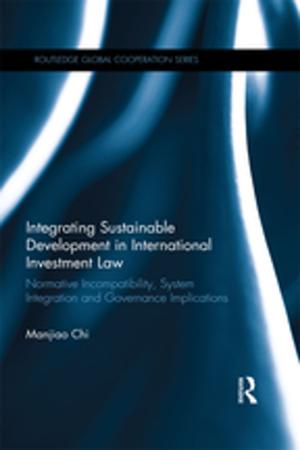| Author: | William C. Ingle-Gillis | ISBN: | 9781351880930 |
| Publisher: | Taylor and Francis | Publication: | December 5, 2016 |
| Imprint: | Routledge | Language: | English |
| Author: | William C. Ingle-Gillis |
| ISBN: | 9781351880930 |
| Publisher: | Taylor and Francis |
| Publication: | December 5, 2016 |
| Imprint: | Routledge |
| Language: | English |
Some hundred years from inception, the ecumenical movement is stagnating. William C. Ingle-Gillis argues that the problem lies in modern ecumenism’s treatment of denominational Churches as provisional entities requiring reunion to be more fully Christ’s Body. In a work unique both to ecumenical studies and to trinitarian theology, the author redefines ecclesial life from the premise that God’s essence is personhood-in-communion and that the ultimate calling of human persons is to share as fully in the divine life as Christ himself. Concluding that the Churches are, by the Spirit’s action, a tangible, dynamic event, wherein God makes visible his on-going reconciliation of the world to himself, Ingle-Gillis argues that the Churches’ true life lies in coming-together, rather than being-together. This conclusion places ecumenism at the heart of Church life and witness.
Some hundred years from inception, the ecumenical movement is stagnating. William C. Ingle-Gillis argues that the problem lies in modern ecumenism’s treatment of denominational Churches as provisional entities requiring reunion to be more fully Christ’s Body. In a work unique both to ecumenical studies and to trinitarian theology, the author redefines ecclesial life from the premise that God’s essence is personhood-in-communion and that the ultimate calling of human persons is to share as fully in the divine life as Christ himself. Concluding that the Churches are, by the Spirit’s action, a tangible, dynamic event, wherein God makes visible his on-going reconciliation of the world to himself, Ingle-Gillis argues that the Churches’ true life lies in coming-together, rather than being-together. This conclusion places ecumenism at the heart of Church life and witness.















